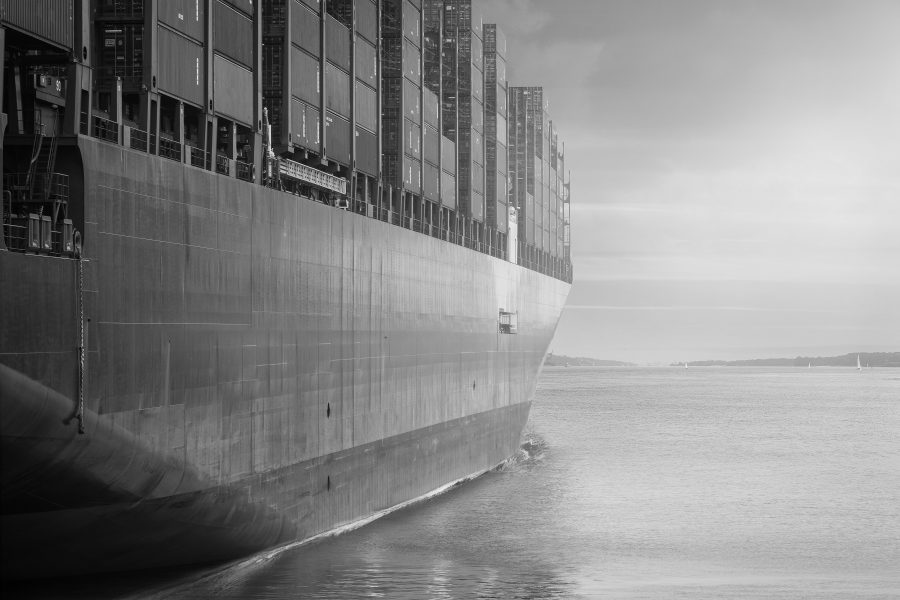In our last article we looked at how Ship Owners were attracting financial investments through innovating their product offering and slowly catching up with the digital age. This commentary will now focus on the softer skills required in dealing with marine money; the importance of good contacts and relationship management to help build trust in transactions.
The historic Baltic Exchange placed great importance on reliance at a global scale, with its moto being ‘our word is our bond’. Whilst the Baltic Exchange has seen many market shifts and recently been bought by Singaporean investors, its foundations on good business networks still holds great relevance.
With today’s instant communication era and 24/7 satellite monitoring, the concept of keeping track of only 52,000 global commercial trading vessels, its cargo, the associated cashflows and the people controlling it should be relatively easy; however, this is surprisingly not the case for such a small industry in terms of stakeholders. Whilst the world seems to be shrinking there are still lots of places to hide in the deep blue sea.
The maritime commercial market is a made up of a truly wide mix of business regions, potential jurisdictions and legal practices. This can make establishing business practices, building trust and establishing integrity extremely difficult. For example, shipbrokers, the professional middle men used to fix cargos, sell vessels and facilitate the commercial negotiations of multimillion-dollar deals between parties yet have no professional standard or authority to adhere to. It is harder, in terms of qualifications, to be an estate agent in the UK; however, shipbrokers regularly give investment advice with limited reference to trading regulations. There are large, truly respected and publicly listed brokerages; however, there are also numerous one-man shops that conduct exactly the same business through their personal networks. The only limiting factor for these global dealers, big or small, is how good their black book of contacts are. It can seem that all is needed is the gift of the gab and a telephone to conduct business.
The reason for this seemingly loosely controlled market space is due to the industry being truly global, off-shore and with moving assets only spending hours within different regionally controlled waters due to the speed in loading/off-loading goods. If the best minds in the EU and UK cannot agree on Brexit there is little chance of the 143 coastal countries agreeing to one global authority and controlling body to manage all shipping standards and best practices.
Additionally, it is completely normal and beneficial for individual ships to be linked to SPV’s and standalone companies, registered offshore and carry ‘flags of convince’. The reasons for this range from normal monetary trading incentives to limiting the risk of having sister vessels arrested within the same fleet in case of unforeseen circumstances e.g. a ship running aground which could potential allow a different vessel to be fined or arrested.
Due to these sometimes non-transparent market practices, it has unfortunately allowed entry of unsavoury situations to occur. Examples include European individuals fronting the purchase of super-tankers for a sanctioned country. To recent reports of transporting illegal crude oil from war-torn Syria. Associated third parties involved in these situations are often fully innocent and ignorant to the underhand actions of the guilty parties as regulations, practices of KYC (know your client) and due diligence procedures can be very difficult to establish and verify. The ramifications of being embroiled with these situations will ultimately have a long-lasting negative impact beyond purely monetary values to include reputational risk, which will further limit future business transactions where reputation is key and our word is our bond.
The upside to this is that getting to know your counter parties can create extremely social events as business parties will need to develop a strong element of trust and align business ethics. This has traditionally been over long lunches and corporate hospitality. For instance, Lloyds of London developed their long lunch reputation directly from how they conducted business on who to back and insure vessels and cargos with.
Because of this reason KYC and KYCC (know your client’s clients) and even KYCCC is extremely paramount and it might just be worth staying for another round, just to build a trusted network of maritime professionals to help with your shipping investments.








